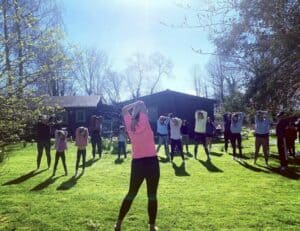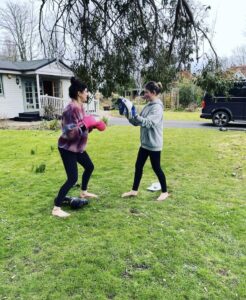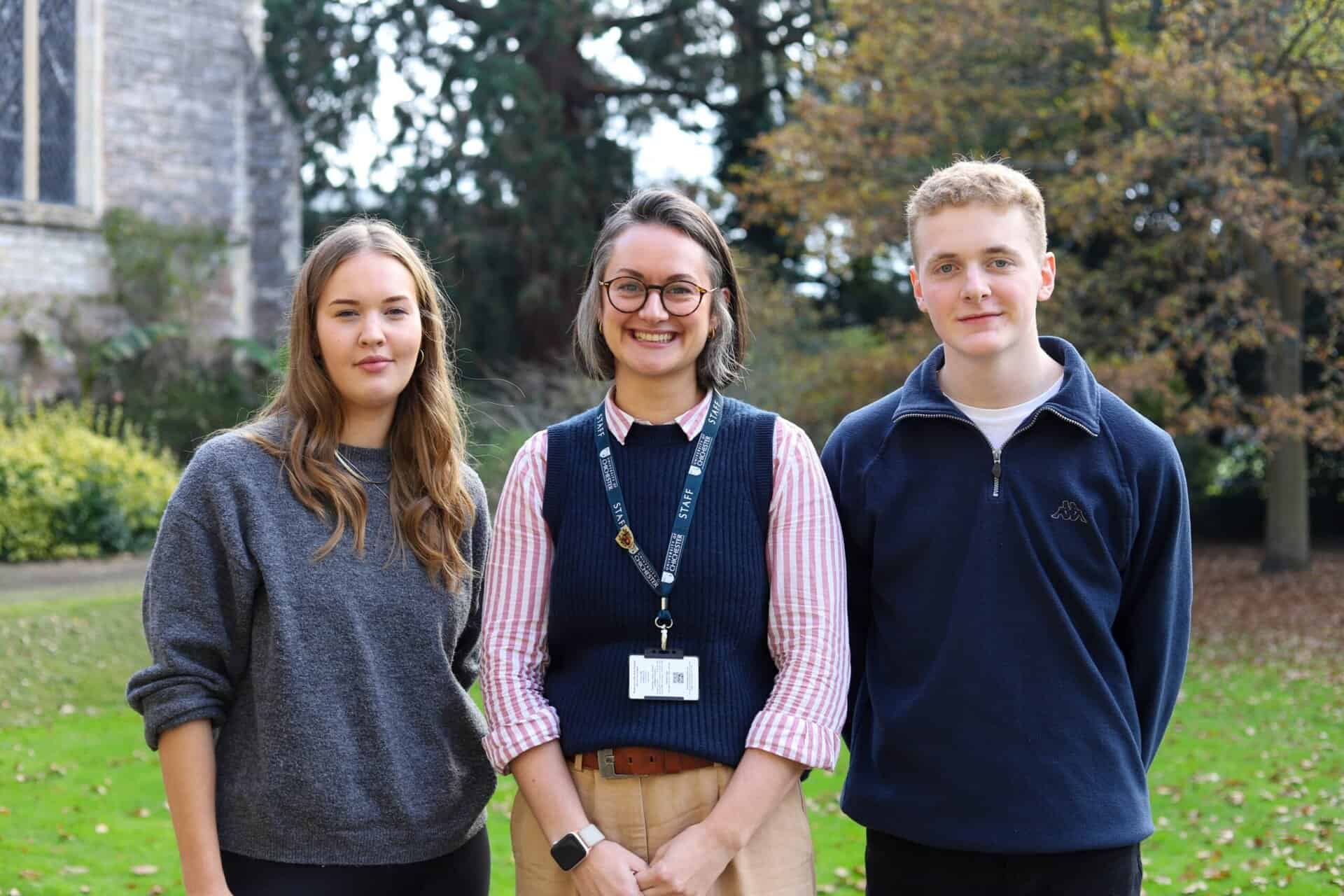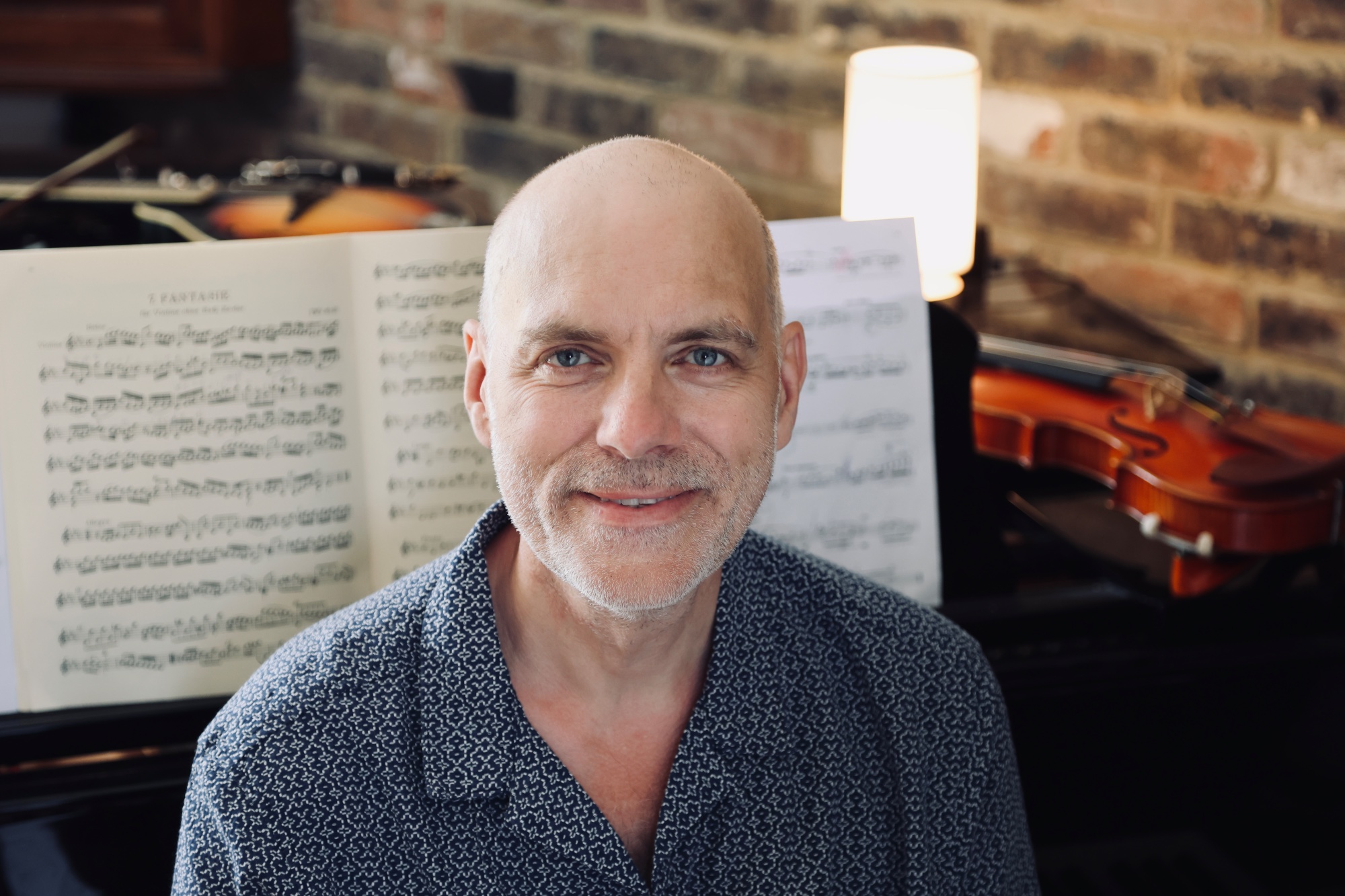Barefoot exercise and meditation is beneficial for children’s mental health, Chichester researcher finds

Research into the impact of barefoot exercise and meditation on young people’s mental health by a student from the University of Chichester could be ‘life changing’ for families.
Gemma Peterson, who is studying a Master’s degree in Health Psychology, won £5,000 funding from the NIHR (National Institute for Health and Care Research) Springboard Award for her Nature Blast (NB) project, which looks at the impact of nature-based interventions on children’s mental health and wellbeing.
Gemma said: “Our intervention Nature Blast combines meditation, mindfulness and exercise outside barefoot, and within this study we measured the impact on wellbeing through qualitative focus groups.”
The research was in response to figures from Action for Children, which said in 2023 that one in four children under 16 is likely to have a mental health problem. Factors were cited as social media, academic pressures and family poverty. The NHS said the main steps to improve wellbeing include connecting with other people, learning new skills, being physically active and mindfulness, while The Mental Health Foundation said being in nature is the key.
Nature Blast was created around these principles. Gemma ran the sessions in Bosham, West Sussex, over the summer and autumn months last year, and families took part in a one-hour group meditation and an exercise circuit. The families were encouraged to take part while being barefoot outside in order to experience the benefits of earthing.
 Gemma said: “We ran the intervention with local families and looked at how it impacted the children’s wellbeing.”
Gemma said: “We ran the intervention with local families and looked at how it impacted the children’s wellbeing.”
She said the participants, which included 13 families with children aged eight to 17 years old, experienced a sense of connection through ‘bringing the families together’ into ‘a safe space and community’.
“Some were sceptical about being barefoot. I said just have a go. They did and loved it. They felt relaxed and calm after.”
Once the activity was completed, an in-person focus group took place with the young people, and a separate online session was held with the parents.
In her findings, Gemma concluded: “All families benefited from attending the sessions and would return. Children enjoyed spending time with their families and bonding.
“The young people shared their enjoyment of exercising outside in nature. They experienced more energy and a clearer mind, and one teenager shared how the sessions supported their stress levels at school and enabled them to become more present using the mindfulness strategies they had learned.
“One child spoke of the exercise and mindfulness helping to reduce their anger, another shared that the sessions helped them to let emotions out and express how they felt through exercise. Many families expressed an interest in having NB in schools or colleges as a PE lesson, a breakfast or afterschool club, or a lunchtime activity to help with relaxation, concentration, stress reduction and increasing connection amongst students.
“I am very pleased with the results, so much so, that I would like to progress this research further and aim to apply for NB as a social prescription in the near future.”
 On how the funding helped her research, Gemma said: “This opportunity has given me valuable experience as a researcher through public engagement, recruitment of research assistants, running focus groups with children, teenagers, and parents, and conducting data analysis with the intention of a future journal publication.
On how the funding helped her research, Gemma said: “This opportunity has given me valuable experience as a researcher through public engagement, recruitment of research assistants, running focus groups with children, teenagers, and parents, and conducting data analysis with the intention of a future journal publication.
“It has allowed me to be consistent as a researcher enabling me to build further knowledge and understanding of an intervention that could become an option in the future for young people as a social prescription, an alternative to medication or CBT (cognitive behavioural therapy).
“It has allowed me to engage with local communities within West Sussex and build upon a research network with local charities, schools and organisations. It has allowed me to develop further evidence-based practice with an intervention that has benefited children and their parents/caregivers.
“This dedicated research time has allowed me to take this research in a direction that will support families of all demographics in the future with their mental health and overall well-being based on positive findings that could be life changing.”
Further findings can be found on the NIHR website, with an article published on the 16 May 2024.





